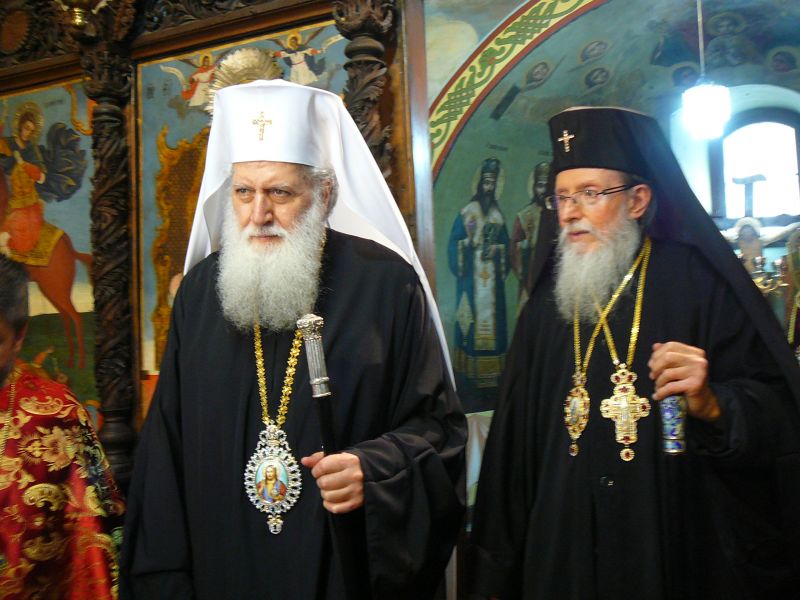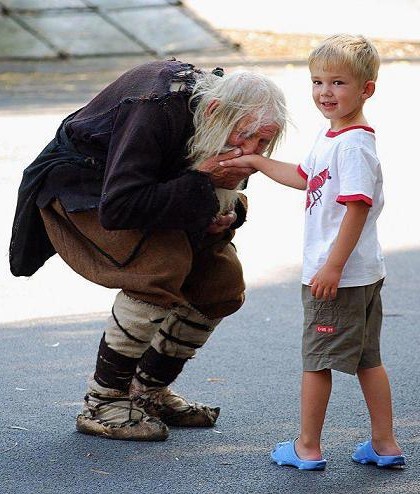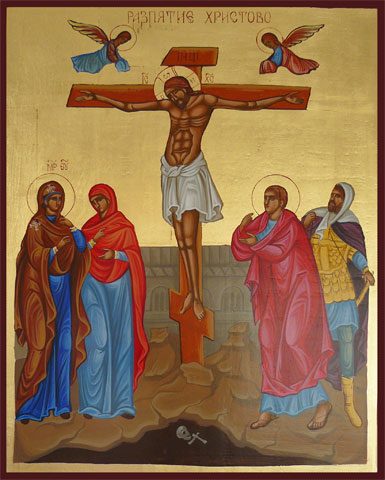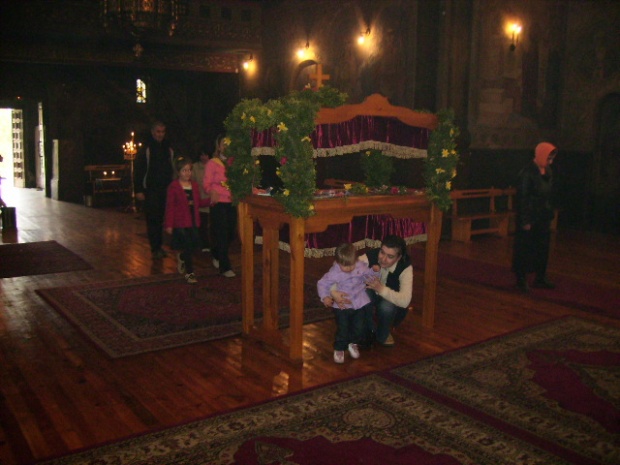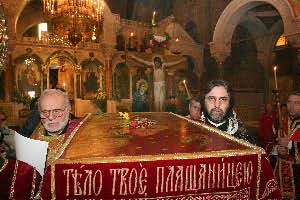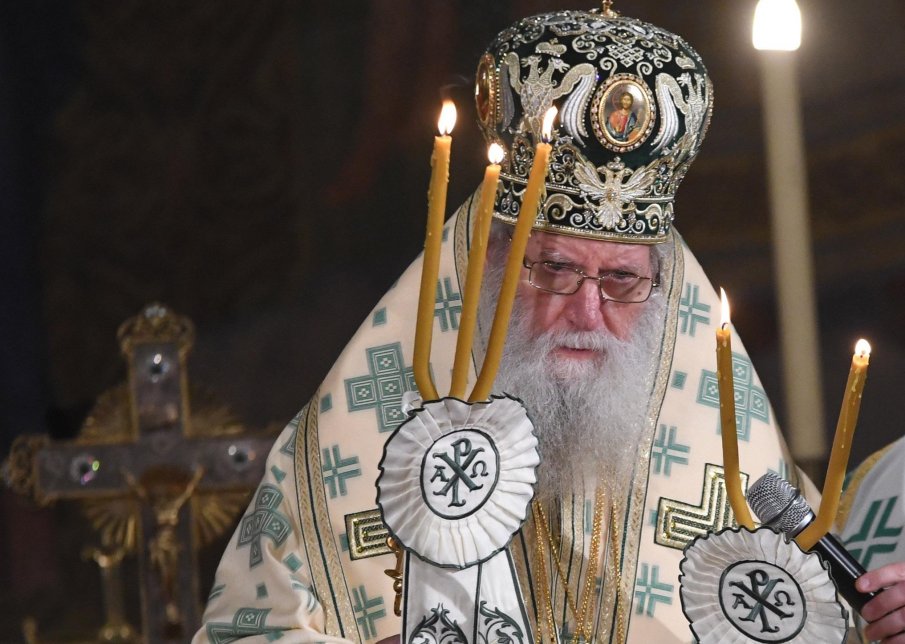
Patriarch Neophyte (Simeon Nikolov Dimitrov) was born on October 15, 1945 in Sofia from a highly pious family. His father was a simple railway man and his mother a maid (cleaner). His Mother was a famous in the Church as a good christian who was singing on the Church choire in some churches and had a great perseverance and love for the Christian faith, she was the one to push further his two boys Simeon and Dimitar to take the spiritual path within the Orthodox Church. One of them the older brother Dimitar Nikolov Dimitrov to later become A Proto-Psalt and Director and Head of Sofia's Saint Alexander Nevsky Cathedral Church choire for many years (the most prestigious place for people who graduated Church music) and the other to become our 7th Patriarch in order from the times of Physical Liberation of Bulgaria From Turkish Slavery and Spiritual liberation from the dictatorship of the Greek Orthodox Church with the restoration of the Bulgarian Church with the Bulgarian Exarchate.
At the age of twenty in 1965, he graduated from the Sofia Theological Seminary "St. Ioan Rilski / Saint John of Rila" (then the seminary moved due to communist party decision) at the Cherepish station nearby the Cherepish monastery, Vrachansko. He served two years of military mandatory service, and in 1971 he graduated from the Theological Academy "St. Kliment Ohridski".
After his specialization at the Moscow Theological Academy in Russia, where he received the title of "Candidate of Theology (COT)" in Church Music (COT equal to our Bulgarian "Phd / doctor") , in 1973 he was appointed a teacher of Choral Church Singing and became the conductor of the student choir at the Theological Academy.
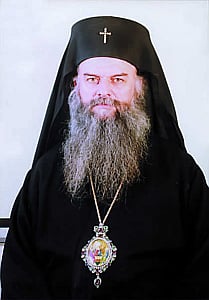
He began his monastic journey under the Spiritual eldership of Archimandrite Gelasius then abbot of the Troyan Monastery.
His monastic ordination in monkship was performed on August 3, 1975 by the previous Bulgarian Patriarch Maxim on the feast of Assumption of the Virgin Mary, August 15, 1975 , he was ordained to the rank of hierodeacon immediately, on March 25, 1976, Annunciation, he was raised in the Church hierarchy to hieromonk, and on November 21, 1977 ., Presentation of the Theotokos (The Entry of Most Holy Theotokos into the Temple), was raised to the Archimandrite dignity.
He then was assigned the obedience to be Protosyncellus (Protosingel) of the Sofia Metropolia in years 1981 to 1985.
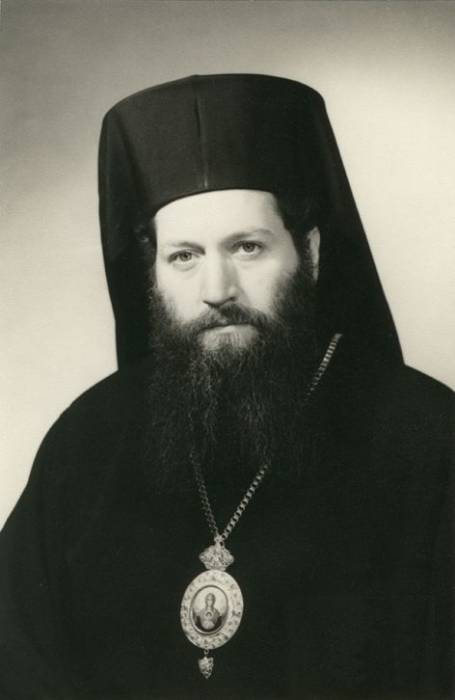
On December 18, 1985, he was ordained as the Bishop of Lefkias (Levkijski) a title earlier held by the all famous Levkijski Bishop Partenius (Partenij) in the Patriarchal Cathedral "Saint Alexander Nevsky" and was appointed as vicar bishop of the Metropolia of Sofia.
In 1989, he became rector of Sofia Theological Academy part of (Sofia University at that time), and in July 1991, when the Theological Academy returned to be the pre-revolutinary Faculty of Theology of the Sofia University "St. Kliment Ohridski", was elected the first dean of the restored Faculty of Theology.
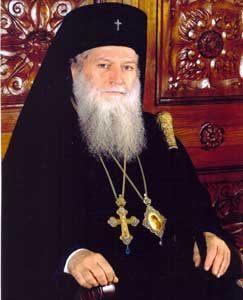
Since January 27, 1992, he has been the chief Secretary of Holy Synod (A prestioug position) until March 27, 1994, when Bishop Neophyte was elected Metropolitan of Dorostolo-Cherven.eparchy (which is now separated in two separate aparchies (The Eparchy of Ruse and Eparchy of Dorostol – the ancient Roman area Dorostorum)
By decision of the Fifth Church-People's Council in 2001, with the consent and approval of the Holy Synod Assembly of metropolitans, the diocese was divided into two (the Dorostol diocese was separated with the city of Silistra -the Ancient Istrum (Histria ancient city) and he began to be titled Metropolitan of Ruse.
In the function of metropolitan he has won the respect of both church and authorities.and he was given the respectful medal "Respected citizen of Ruse".
In 2008 metropolitan Neophyte received the very prestigious academic title "doctor honoris causa" of the Sofia University "Saint Kliment Ohridski". More about it here.
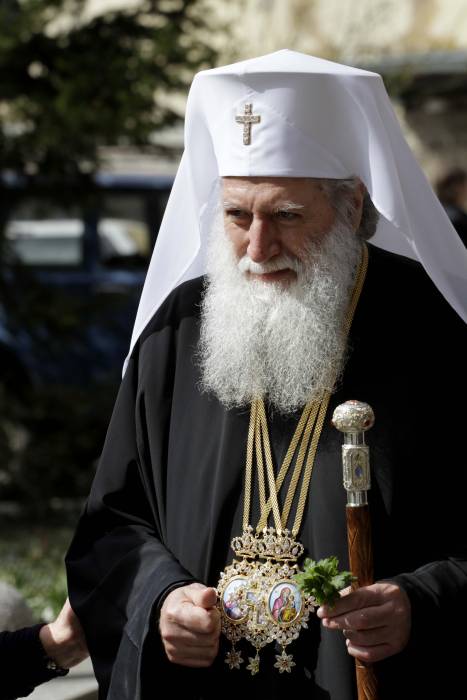
On 22 June 2010 he was given a medal "St. St. Cyril and Methodius" as a respectful act for his big contribution to development of Bulgarian Music and Culture.
On February 24, 2013, a Patriarchal Electoral Church Council was convened in Sofia and the people and all people were mostly troubled on who will be the next Patriarch in this muddy times.
Soon after his arise to patriarchical throne in 2013 he was given another medal he received "Glory and Honour" in 2013 by Russian Orthodox Church.
Every Church member of that time was troubled about the future of the Bulgarian Orthodox Church, and everyone felt a big relief as The Synodal Elders elected Metropolitan Neophyte of Ruse to become the 7th Patriarch of Bulgaria after the restoration of the BPC-BP Bulgarian Church (Bulgarian Patriarchate) after so many years of being under the yoke of Byzantine Church and after liberation of Bulgaria, due to politics delicions and the harsh and anti-bulgarian activities of the Greeks in attempt to own the Church the church suffered its schism and returned its full communion to the family of national members of Holy Eastern Orthodox Church.
After his election His Holiness Patriarch Neofit is titled Metropolitan of Sofia.and Patriarch of Bulgaria.

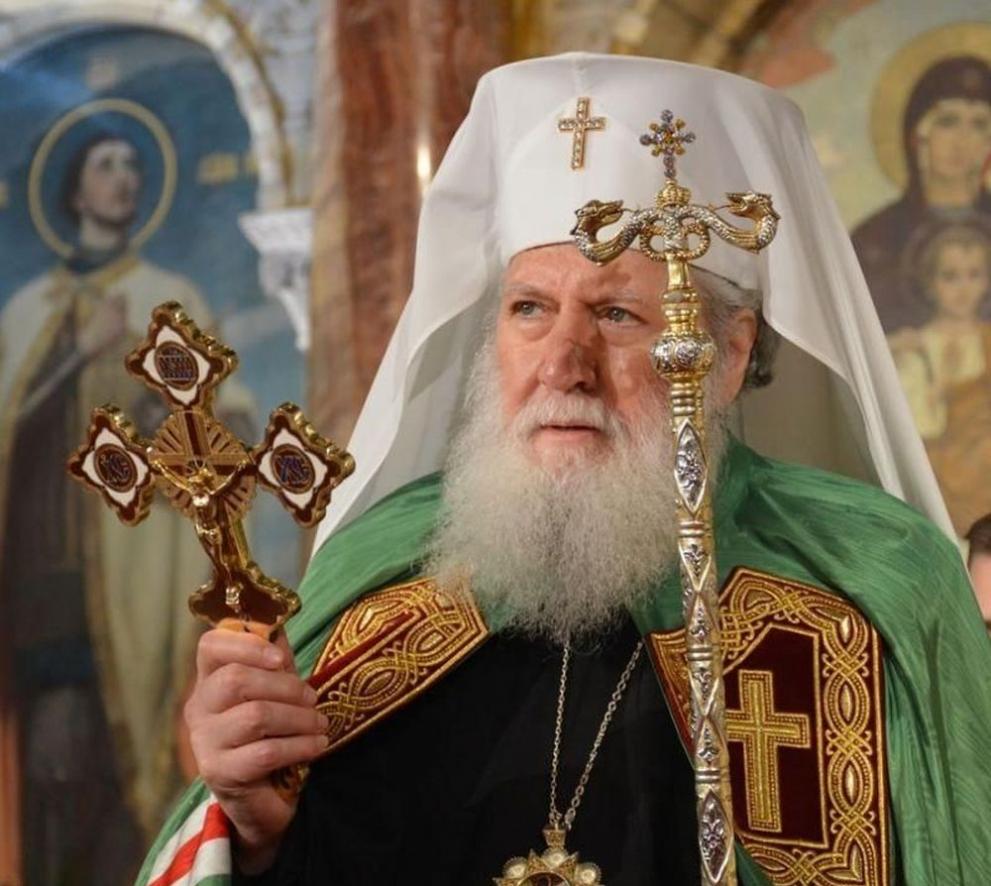
Patriarch Neophyte has the fame of being one of the best church singers in Bulgaria and one of the best and most famous Church Hymns has been circulating throughout the public space the Internet / TV and Radio for the last 10+ years as they are invaluable due to the unique voice qualities of the Patriarch. I guess there is no person in Bulgaria and outside of it who did not heard his Paschal (Katavasia and Stychorions) Hymns.
Resurrection of Christ Katavasios and Stychorion Playlist with Patriarch Neophytos (Sung) Famous Eastern Orthodox Hymns Patriarch Neofit passed away on 13 of March 2024 after a months of sickness after being hospitalized on 29 November 2023 in VMA (Army Medical Academy) due to pulmonary disease (later to understand it is a cancer in its latests stages). In his last days in hospital, the Holy Synod summoned all the Churches and people to pray fervently for the quick recovery of the patriarch through a miracle.
Patriarch Neofit passed away silently his clean holy Soul to Christ on 13 of March 2024.
His brother Proto-Psalt (associated professor) Dimitar also passed on on 11 January 2024.
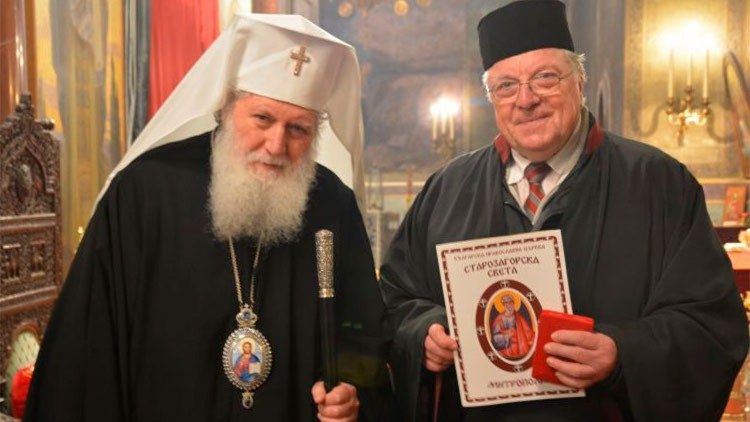
Patriarch Neophytos and his brothre Proto-Psalt Dimitar
Protopsalt Dimitar Dimitrov a brother of the Patriarch passed just 2 days after a famous Metropolitan of Joanichius has passed away to Christ on 9 January 2024 in 82 years of old.
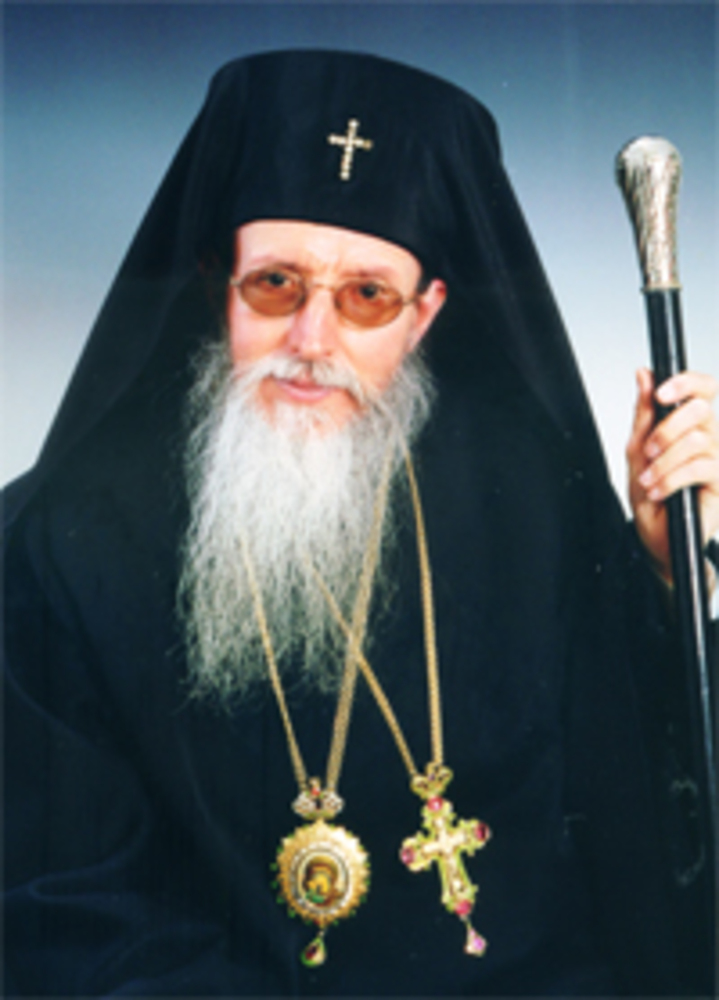
His Holiness Metropolitan Joanichius
Patriarch Neofit and Metropolitan Joanichius
The personality of Patriarch Neophytos was non-conflict, a lover of peace and compromises, anti-war (i would say pacifist in modern terms) and was among the few patriarchs not being in fear or influenced by the overall Church politics of the Russian Church and he publicly condemned the war as a great evil in his Theophany preach.
"The Lord God and the Holy Church bless only that army that does not show aggression, and whose sole purpose is to protect and defend its people and country within its internationally recognized territorial borders," said the patriarch for the feast of Epiphany water sanctification and sprinkling of battle flags.
The patriarch position was to try to reconcile the clergy and try to heal the misunderstandings and human conflicts between his God given flock of Priest, Monks, Bishops and Clergy with true fatherhood love, prayer and a lot of patience that we the people of 21 century miss so badly.
With a lot of sadness we send our beloved Patriarch Neophytos (Neofit) of Bulgaria to the All Mighty God and Pray if he has received a Grace from God to Pray fervently and Always for us his poor pupils and childs!
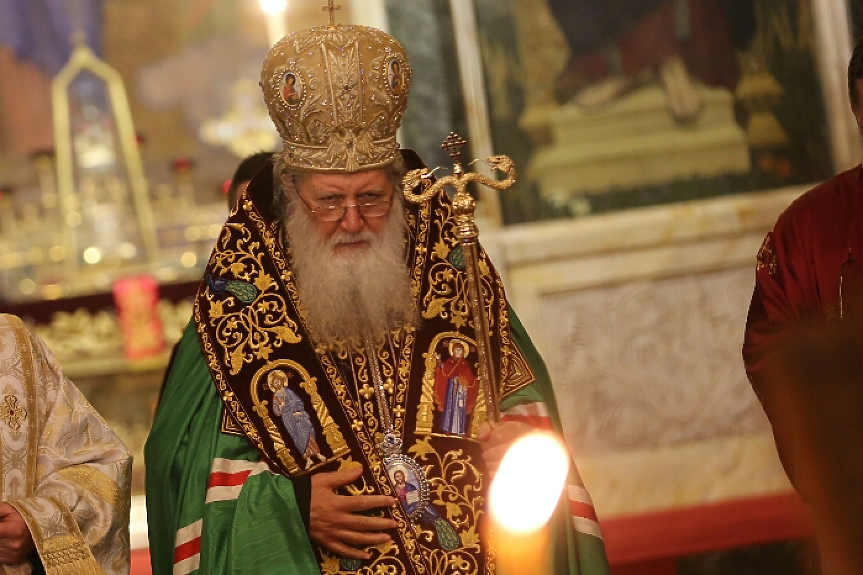
God Have Mercy on the Soul of Patriarch Neophytos ! Blessed and Eternal to be his Memory ! Amen !
